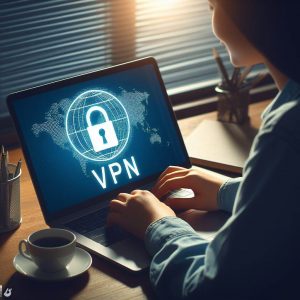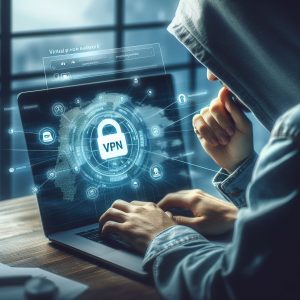I. Introduction to VPN and ISP
A Virtual Private Network (VPN) serves as a encrypted tunnel between your device and the wider internet, hiding your online activities and true IP address from external parties. Internet Service Providers (ISPs) on the other hand assign IP addresses that identify your device and can potentially monitor or log information about sites you visit and data you send or receive online. Both play key roles in modern internet use – one in protecting privacy, the other in enabling access.
When considering whether VPN hide internet activity from ISPs, understanding both their functionality and limitations is key. We’ll explore what exactly VPN hide, methods ISPs use to still potentially identify VPN traffic, alternative tools to VPN, and considerations around using reputable commercial VPN versus free options. Read on for greater insight around the question of whether VPN can truly hide your online activity from internet providers.

II. What Does a VPN Hide?
At a basic level, VPN services obscure two critical pieces of identifying user data from ISPs and the wider internet: your IP address and your traffic itself.
A. Hides Real IP Address
By establishing an encrypted tunnel between your device and a remote VPN server, your connection gets routed through that server, masking your true public IP address assigned by your ISP. Instead, only the IP address of the VPN server itself is visible to external parties like your ISP or sites you visit. This prevents them determining your location or identity based on the IP address.
B. Encrypts Internet Traffic
In addition to hiding the user’s IP, VPN also encrypt internet traffic by default before it leaves the local device using protocols like OpenVPN or IKEv2. This encrypts the actual content of the sites visited and data sent/received so that ISPs have no visibility into what the user is actually doing online. Only the VPN provider itself has access to decrypt user traffic data.
This dual-layer protection of both hiding the originating IP and encrypting actual internet content provides substantial privacy protections from external monitoring. Many individuals leverage VPN connections when using public Wi-Fi or torrenting copyrighted material to prevent network administrators or government agencies observing those activities directly. VPN thereby limit visibility not just for ISPs but any wider observers.
III. Can an ISP See Through a VPN?
While VPN provide vital protection and anonymity online, there are still methods available for ISPs to potentially identify VPN use and user traffic despite encryption mechanisms:
A. Monitoring Data Packet Travel
Even when unable to access the encrypted contents of traffic, ISPs remain able to monitor the data packet size and frequency moving back and forth from a user’s connection to VPN servers. This VPN metadata and usage pattern analysis can allow inference into the type of traffic or activity occurring while using the VPN tunnel.
Sustained and substantial data packet flows may indicate bulk downloading or streaming for example. Spikes in activity could signify gaming or video calling usage. So while unable to directly observe traffic content itself, metadata patterns still provide hints.
B. Identifying VPN Server Addresses
ISPs maintain databases of known VPN provider IP addresses and hosting ranges which they can crosscheck traffic against to identify VPN usage on their networks. Traffic to or from these flagged ranges clearly indicates a subscriber is actively utilizing a VPN. The specific identity would still remain hidden given VPN IP obfuscation, but the ISP could confirm VPN usage itself.
Depth and sophistication of these VPN identification methods depend heavily on the specific ISP and their data mining priorities. But in short – advanced techniques exist to deduce user activity despite VPN encryption protections.

IV. VPN Alternatives and Considerations
Beyond commercial VPN services, some alternative options also exist:
A. Tor Network
The Tor browser routes traffic through multiple encrypted proxy layers for maximum anonymity. While effective at obscuring traffic, speeds suffer greatly compared to typical VPN. The encryption can also raise red flags to ISPs and invites deeper traffic analysis.
B. Residential Proxies
Utilizing thousands of residential IP addresses as exit points for traffic can also mask user origins. However these lack built-in encryption mechanisms by default without additional tools. Proxies also fail to hide traffic from the proxy provider itself, introducing privacy risks.
Ultimately both carry more limitations compared to commercial VPN options broadly available today. However some users layer VPN and Tor connections together for maximum ISP evasion and traffic masking capabilities despite steep speed trade-offs.
A common piece of advice often overlooked is avoiding entirely free VPN services. If not paying for the product, user data itself often becomes the product. This introduces substantial privacy risks and removes assurances or accountability around logging policies for these services. Reputable paid providers offer greater transparency and protections.

V. Conclusion
There exists an arms race between ever-advancing commercial VPN encryption capabilities and sophisticated data mining efforts by state agencies and private ISP alike. No solution yet guarantees absolute and permanent obscurity from traffic monitoring and inference efforts. Constant evolution is still required to stay a step ahead.
VPNs undoubtedly provide the fastest and most easily accessible solution for the average consumer privacy needs today. When leveraged correctly, they limit the ability of ISPs to directly monitor the sites you visit and content you consume online. For individuals focused on masking activity from prying ISP eyes, reputable VPN bring measurable protections.
However some persistent surveillance efforts can still identify VPN usage itself and make deductions around traffic patterns despite lacking specifics. No options remain future-proofed against ever improving tracking capabilities globally by state and corporate analytics alike.
As such users must remain vigilant in selecting trusted VPN providers establishing reliable and accountable protections aligned to their privacy priorities. Blind faith fails to account for the array of existing methods that squeeze through the cracks of VPN shields. Combining informed provider selection with safe browsing and downloading habits stands as the most prudent approach to balancing security, functionality and freedom online.